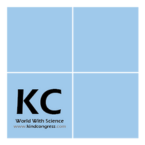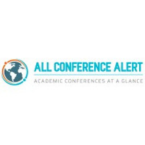Sessions
Track 1: Clinical Microbiology and Diagnostic Techniques
This session highlights recent advances in the field of clinical microbiology, including improved diagnostic tools and laboratory techniques. Discussions will explore culture methods, molecular diagnostics, point-of-care testing, and automation in labs. The integration of rapid testing into clinical workflows for faster treatment decisions will be covered. Speakers will also address challenges in pathogen detection and diagnosis in resource-limited settings.
Track 2: Medical Virology and Emerging Viral Infections
This track will explore key developments in virology, focusing on the identification and management of both established and emerging viruses. Topics include viral replication, immune evasion mechanisms, and mutation patterns. Special emphasis will be placed on new outbreaks such as SARS-CoV-2 variants, Zika, and monkeypox. Participants will gain insights into surveillance, vaccine updates, and antiviral strategies.
Track 3: Antimicrobial Resistance and Stewardship
Antimicrobial resistance (AMR) poses a major threat to global health. This session will address mechanisms of resistance in bacteria, viruses, and fungi, and examine how overuse and misuse of antimicrobials contribute to the problem. Topics include AMR surveillance, novel antibiotics, and global stewardship initiatives. Discussion will also focus on implementing effective antimicrobial stewardship programs in hospitals and communities.
Track 4: Infectious Disease Epidemiology and Surveillance
This session will focus on the study of disease distribution, determinants, and preventive strategies. It includes methods for outbreak investigation, contact tracing, and statistical modeling. Participants will learn how surveillance data informs public health decisions and policy development. Real-world examples will highlight how epidemiology has shaped the response to diseases like COVID-19, Ebola, and influenza.
Track 5: Bacterial Pathogenesis and Host Interactions
This track examines the mechanisms bacteria use to invade, survive, and multiply within host organisms. Topics include bacterial adhesion, toxin production, immune system evasion, and intracellular persistence. Understanding these interactions helps in identifying therapeutic targets. The session will also discuss host factors that influence infection outcomes and susceptibility.
Track 6: Immunology of Infectious Diseases
Explore how the immune system detects and responds to microbial invaders. This session covers both innate and adaptive immunity, including the roles of T-cells, B-cells, and cytokines. Discussions will highlight immunopathology in severe infections, immune memory, and implications for vaccine design. The session also explores immune dysregulation in chronic and emerging infections.
Track 7: Tropical and Neglected Infectious Diseases
Diseases such as malaria, leishmaniasis, dengue, and schistosomiasis continue to affect millions in tropical and low-income regions. This track focuses on their transmission dynamics, diagnostic challenges, and treatment options. It also highlights the socio-economic impact of neglected tropical diseases (NTDs) and global efforts to eliminate them. Innovations in control programs and funding priorities will be discussed.
Track 8: Viral Hepatitis and Liver Infections
This session will examine the global burden of hepatitis A, B, C, D, and E. Topics include modes of transmission, chronic liver complications, diagnostic biomarkers, and evolving therapeutic strategies. Advances in antiviral therapies and hepatitis B and C elimination programs will be explored. The impact of co-infections with HIV and metabolic disorders will also be discussed.
Track 9: COVID-19 and Post-Pandemic Preparedness
As the world recovers from the COVID-19 pandemic, this session focuses on key lessons learned and future strategies. Topics include vaccine technology, viral variant tracking, and public health response planning. Long COVID research and patient management protocols will be explored. The session will also address global preparedness for future pandemics and emerging respiratory pathogens.
Track 10: Hospital-Acquired and Healthcare-Associated Infections
Nosocomial infections remain a leading cause of morbidity and mortality. This session covers infections such as MRSA, Clostridioides difficile, catheter-associated infections, and ventilator-associated pneumonia. Topics include hospital infection control policies, hand hygiene, sterilization practices, and surveillance systems. The importance of interdisciplinary teams in reducing HAIs will be emphasized.
Track 11: Pediatric and Neonatal Infectious Diseases
This session will focus on infections in neonates, infants, and children, where immune responses differ significantly from adults. Topics include congenital infections, vaccine-preventable diseases, and pediatric HIV. Participants will learn about the challenges of diagnosing and treating infections in this age group. Emphasis will be placed on antimicrobial use and resistance in pediatric settings.
Track 12: Zoonotic and Vector-Borne Diseases
Diseases like rabies, Lyme disease, chikungunya, and West Nile virus pose a continuous threat to public health. This track discusses animal-to-human transmission, reservoir hosts, and vector ecology. One Health approaches linking human, animal, and environmental health will be highlighted. Preventive strategies including surveillance, vaccination, and vector control will also be covered.
Track 13: Sexually Transmitted Infections and HIV/AIDS
This track covers a wide range of STIs, including syphilis, gonorrhea, chlamydia, and human papillomavirus (HPV), alongside HIV. Topics include diagnosis, prevention, and global treatment guidelines. The session will explore current research on HIV PrEP, ART resistance, and mother-to-child transmission. Public health interventions and stigma reduction strategies will also be discussed.
Track 14: Fungal Infections and Mycology
Fungal infections, especially in immunocompromised patients, are on the rise. This track covers common and emerging mycoses such as candidiasis, aspergillosis, and cryptococcosis. Emphasis will be placed on fungal diagnostics, resistance to antifungal agents, and the clinical burden of invasive fungal diseases. Case studies will illustrate complex clinical presentations.
Track 15: Parasitic Infections and Global Burden
This session explores protozoal and helminthic infections, such as giardiasis, toxoplasmosis, and filariasis. Participants will gain insights into diagnostic techniques, control measures, and treatment strategies. The impact of sanitation, climate change, and poverty on parasitic disease transmission will be discussed. Global health programs targeting parasite elimination will also be featured.
Track 16: Infection Prevention and Control Measures
Effective infection control is critical in limiting disease spread in healthcare and community settings. This track covers sterilization, environmental hygiene, isolation protocols, and the role of infection control personnel. The session will also review outbreak preparedness, PPE usage, and behavioral change strategies to enhance compliance with safety protocols.
Track 17: Vaccines and Immunization Strategies
This track highlights progress in vaccine development and global immunization programs. Topics include mRNA vaccine platforms, combination vaccines, booster dosing, and vaccine hesitancy. Emphasis will be placed on improving vaccine access and equity in low- and middle-income countries. Surveillance of vaccine-preventable diseases and impact assessment will also be discussed.
Track 18: Global Health and Travel Medicine
This session addresses infectious risks linked to international travel and migration. Topics include travel vaccination, disease surveillance in travelers, outbreak detection, and the spread of antimicrobial resistance across borders. The session will also explore health advisory systems and public health protocols to protect both travelers and destination populations.
Track 19: Laboratory Quality and Biosafety Standards
High-quality laboratory work is essential for accurate diagnostics and disease control. This track explores best practices in laboratory safety, sample handling, accreditation, and quality control systems. Participants will also learn about biosafety level protocols, contamination prevention, and regulatory standards for working with high-risk pathogens.
Track 20: Advances in Therapeutics and Clinical Trials
Explore the latest developments in anti-infective therapies, including antivirals, antibiotics, antifungals, and immunotherapies. The session will showcase clinical trial updates, precision medicine approaches, and drug repurposing for infectious diseases. Ethical considerations and regulatory pathways for rapid approval will also be discussed.





